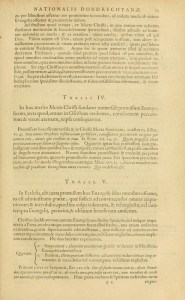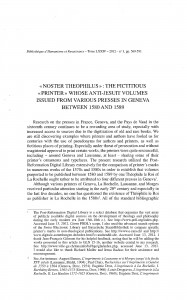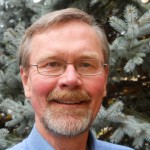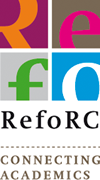
The panel will feature comments from David C. Noe, the translator of a new publication from Reformation Heritage Books, A Treatise on True Theology, as well as JI senior fellow Richard A. Muller, who contributed a foreword to the volume. JI director Todd Rester, who is working on a translation of Junius’ On the Observation of the Mosaic Polity, will also speak, as will JI research curator David Sytsma, who will introduce a new digital companion tool developed in conjunction with the RHB publication. Calvin Seminary president emeritus James A. DeJong will serve as a moderator for the panel discussion and presentations.
Join us in the auditorium at Calvin Seminary if you are in the area on Tuesday, November 11, from 6:30pm to 8:00pm for this event, marking the publication of a major new translation of one of the most formative theological texts of the early modern period.

 We’re happy to announce the
We’re happy to announce the 

